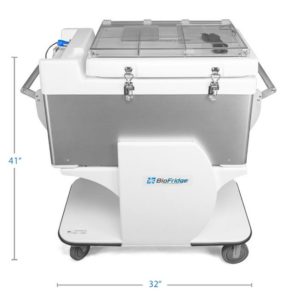Best Practices: Storage of Vaccines
Vaccine Storage: Best Practices
Vaccines are vital instruments towards the protection of humans from life threatening diseases. However, they are also particularly sensitive to temperature, light, humidity and other environmental factors.
Hence, it is important to store them under controlled conditions to ensure their potency. Listed below are 5 strategies or “Best Practices” that will ensure that vaccines are stored appropriately and under optimum conditions.
Following CDC Guidelines
The CDC has shared a detailed set of guidelines through its “Vaccine Storage and Handling Toolkit”. The toolkit includes instructions on vaccine care right from manufacturing to administration as they believe that “vaccine care is the joint responsibility of everyone” involved in the cold chain supply.
Inventory Check
It is also a good practice to check the vaccine inventory regularly. A thorough check needs to be done upon receiving the vaccines. The appointed vaccine co-ordinator needs to keep a check on the vaccine expiry dates, signs of external damages, and also taking care of vaccines that are expired or have experienced serious temperature fluctuations and maintaining a monthly vaccine inventory log.
Using a Medical Refrigerator
Storing vaccines in a medical refrigerator as opposed to a dormitory style refrigerator is one of the important guidelines issued by the CDC. Medical refrigerators are often designed to cater to the storage of vaccines and other sensitive medical items that need to be stored under extremely controlled conditions. They are manufactured to include features that would ensure potency and safety of all the medical components stored within it.
Proper Organization
Storing vaccines in their original boxes to protect them from light, placing them in wired or transparent trays for ease of visibility, storing vaccines close to expiry right in front are few of the best practices suggested by the CDC for vaccine organization. Their toolkit also provides specific areas that are best for vaccine storage and also mentions areas where vaccines shouldn’t be placed for their safety.
Back Up Refrigerator
While ensuring ideal storage conditions, one must also be prepared for the worst. Having a back-up refrigerator handy to store vaccines if the original unit breaks down is an important safety precaution. It would also be required if the unit needs to be maintained and cleaned. A portable medical refrigerator such as the ones manufactured by Biofridge can suffice as a temporary back-up refrigerator in most cases.
Read an extended version of this article here.
Browse through our products or give us a call on 760-233-8847 if you wish to know more about how we can help you. You can also write to us at sales@biofridge.com.
Sources:
- https://www.cdc.gov/vaccines/hcp/admin/storage/downloads/C-vax-temp-best-practices-fridge-C.pdf
- https://www.mass.gov/doc/guidelines-for-compliance-with-federal-vaccine-administration-requirements/download
- https://www.cdc.gov/vaccines/hcp/admin/storage/index.html#print
- https://www.cdc.gov/vaccines/hcp/admin/storage/toolkit/storage-handling-toolkit.pdf



